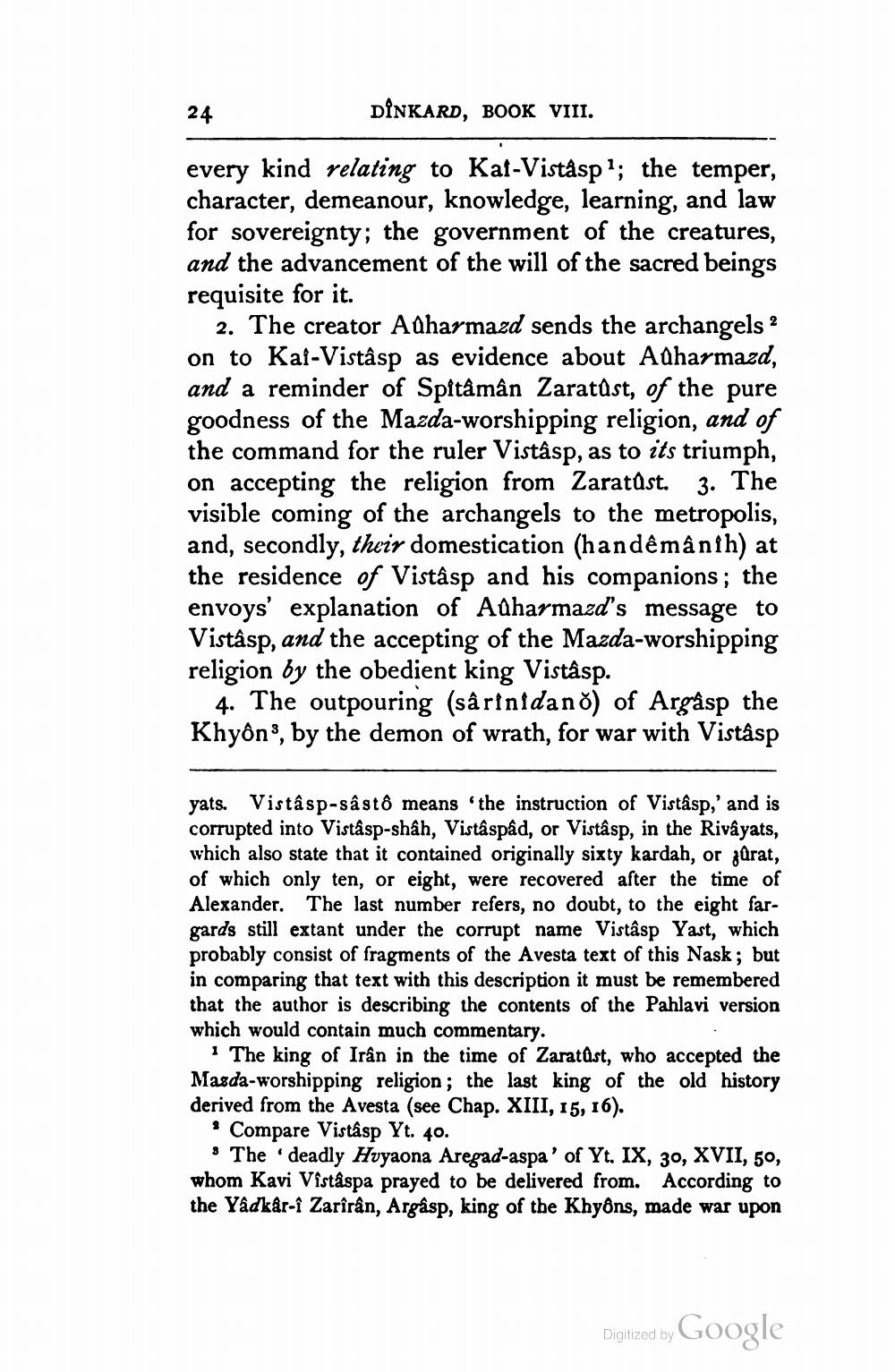________________
24
DÎNKARD, BOOK VIII.
every kind relating to Kal-Viståsp"; the temper, character, demeanour, knowledge, learning, and law for sovereignty; the government of the creatures, and the advancement of the will of the sacred beings requisite for it.
2. The creator Adharmazd sends the archangels 2 on to Kai-Vistâsp as evidence about Adharmazd, and a reminder of Spitâmân Zaratůst, of the pure goodness of the Mazda-worshipping religion, and of the command for the ruler Vistâsp, as to its triumph, on accepting the religion from Zaratust. 3. The visible coming of the archangels to the metropolis, and, secondly, their domestication (handêmânih) at the residence of Vistâsp and his companions; the envoys' explanation of Adharmazd's message to Vistasp, and the accepting of the Mazda-worshipping religion by the obedient king Vistâsp.
4. The outpouring (sârinidano) of Argåsp the Khyôn", by the demon of wrath, for war with Vistâsp
yats. Vistâsp-sâ stô means "the instruction of Viståsp,' and is corrupted into Vistasp-shah, Vistâspâd, or Vistâsp, in the Rivayats, which also state that it contained originally sixty kardah, or jurat, of which only ten, or eight, were recovered after the time of Alexander. The last number refers, no doubt, to the eight fargards still extant under the corrupt name Vistâsp Yast, which probably consist of fragments of the Avesta text of this Nask; but in comparing that text with this description it must be remembered that the author is describing the contents of the Pahlavi version which would contain much commentary.
1 The king of Iran in the time of Zaratůst, who accepted the Masda-worshipping religion; the last king of the old history derived from the Avesta (see Chap. XIII, 15, 16).
* Compare Vistâsp Yt. 40.
* The deadly Huyaona Aregad-aspa' of Yt. IX, 30, XVII, 50, whom Kavi Viståspa prayed to be delivered from. Accor the Yâdkår-i Zarîrân, Argåsp, king of the Khyons, made war upon
ayed to be delivered from
According on
Digitized by Google




